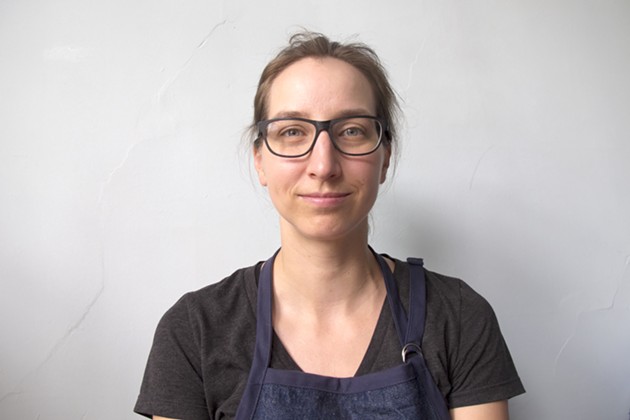
Shoreline 2099
Halifax waterfront
Oct 12-17
The water pitches and heaves. The air smells of salt. Sometimes, the wood creaks. Don’t be afraid: You’re not about to fall into the Atlantic.
At least, you won’t yet. But come 2099, the Halifax waterfront will look very different. About half the wooden walkway will be gone as climate change causes water levels to rise. The spot you’re standing on? It might be, too—alongside buildings that now dot the harbour, like Queen’s Marque and Casino Nova Scotia.
If you’re having a hard time to visualize this, don’t worry: sculptor turned installation artist Marie-Soleil Provençal’s Nocturne exhibit, Shoreline 2099, will finally make you see it.
“It’s a visual marker, it’s making things more realistic than just words sometimes. I love words, but seeing it visually it’s like ‘oh wait, now I get it’,” Provençal explains.
Her Nocturne project—reflective tape on the ground, marking where the new Halifax shoreline will be—is an attempt to end apathy. When asked what she’d say to those who would tell her that the only answer is to divest from big oil and hold corporations accountable, Provençal says: “Yeah but, we are part of those companies, we are part of those governments—we elected them, we’re employees of them. So I think we are part of it, if we want it or not.”
